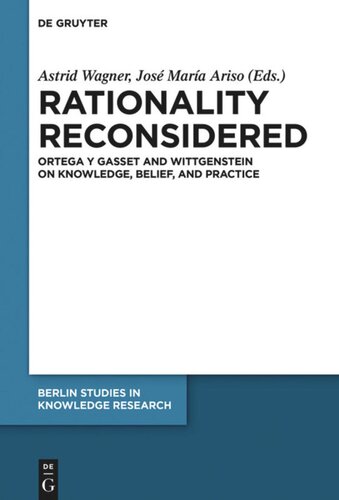

Most ebook files are in PDF format, so you can easily read them using various software such as Foxit Reader or directly on the Google Chrome browser.
Some ebook files are released by publishers in other formats such as .awz, .mobi, .epub, .fb2, etc. You may need to install specific software to read these formats on mobile/PC, such as Calibre.
Please read the tutorial at this link: https://ebookbell.com/faq
We offer FREE conversion to the popular formats you request; however, this may take some time. Therefore, right after payment, please email us, and we will try to provide the service as quickly as possible.
For some exceptional file formats or broken links (if any), please refrain from opening any disputes. Instead, email us first, and we will try to assist within a maximum of 6 hours.
EbookBell Team

4.1
60 reviewsThis volume treats the topic of rationality developing a perspective that integrates elements of philosophy of language, phenomenology, pragmatism, and philosophy of life.
The two reference authors, Wittgenstein and Ortega, are contemporaries but come from different philosophical traditions. Wittgenstein's early work was influenced by logical positivism. Later he developed an influential approach to philosophy of language. Ortega was influenced by Neo-Kantianism, perspectivism, life philosophy, and phenomenology. On this basis, he developed an independent approach that has become known as ratiovitalism.
Astonishing affinities between their respective reflections on rationality motivated the experiment of bringing the different approaches into a synergetic relation. Both investigate the structures and limits of rationality, emphasize the importance of basic beliefs, and criticize the restriction of rationality concepts to the intellectual sphere.
The contributions of the volume focus on: dynamics of belief and knowledge, implicit and explicit knowledge, the concept of “vital reason”, the role of world-pictures and forms of life, questions regarding certainty, ignorance, doubt, and madness, as well as matters of pluralism and relativism.